
Nick Abbot 10pm - 1am
24 January 2021, 15:26 | Updated: 24 January 2021, 17:11
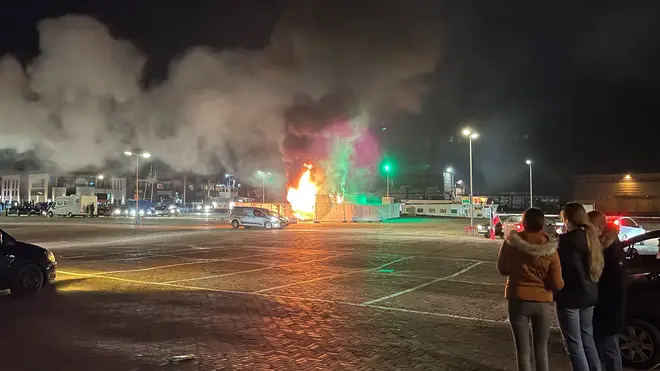
A group of young people set fire to a Covid-19 testing centre and threw fireworks at police on the first night of a curfew in the Netherlands.
The local authorities in the Dutch fishing village of Urk, 50 miles north-east of Amsterdam, described the riot as “a slap in the face” to local health staff.
Meanwhile, in Stein, close to the Belgian border, at least 14 arrests were reportedly made after around 100 young people refused to return home, some throwing fireworks at police.
Riot police were drafted in to restore order in both instances on a night that saw 3,600 people fined by police for breaking the curfew, which ran from 9pm on Saturday until 4.30am on Sunday.
Read more: Police issue over £15,000 fines during Covid-19 raid on rave in east London
Read more: New Zealand reports first Covid-19 case outside quarantine in over two months
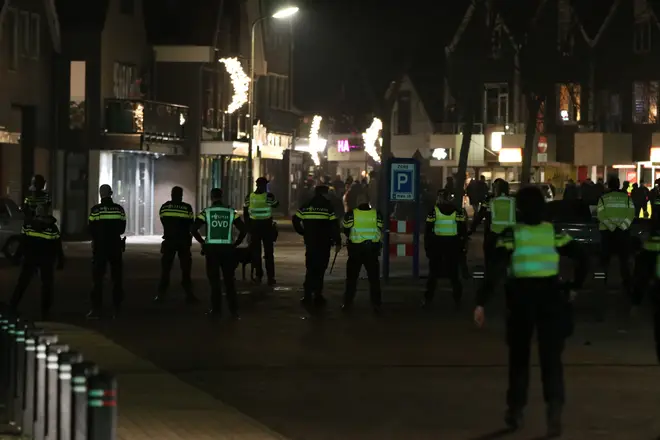
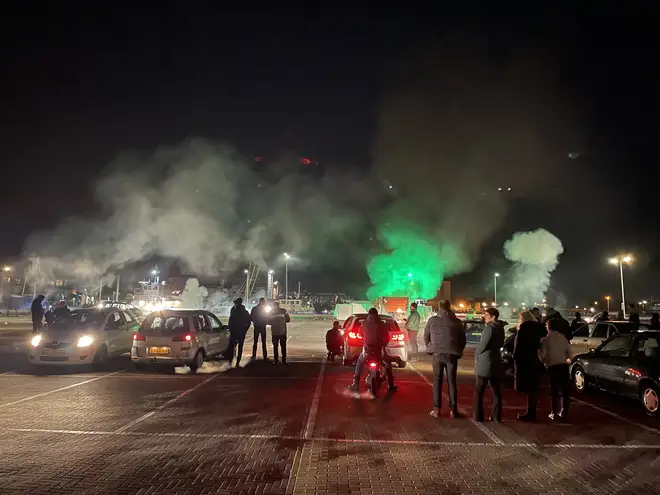
Across the country, 25 people were arrested for either breaching the curfew or for related violence.
Urk mayor Cees van den Bos, described the night as “dramatic”, adding: “I am so ashamed of what has happened. We want peace in Urk.”
Videos posted online by local journalists showed riot police deploying dogs to help regain control of the streets, with fireworks and bricks thrown by protesters.
Veel agenten op de been, maar kunnen nu niks anders dan straat afsluiten. Demonstranten zijn in overtal. pic.twitter.com/vB8mjnaz44
— Vincent Triest (@VincentTriest) January 23, 2021
By Sunday morning the town's drive in Covid test site was just a burnt out shell.
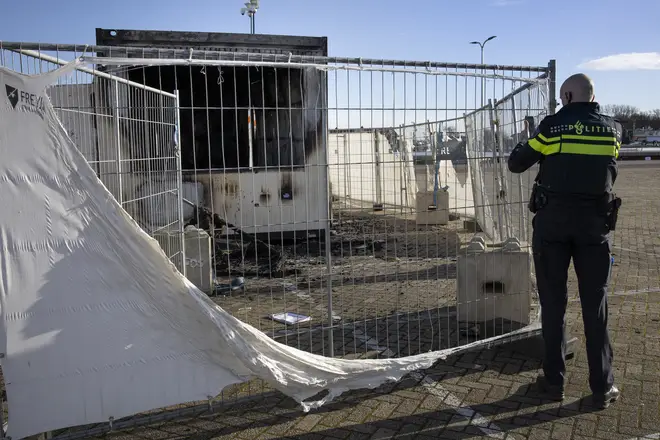
The first curfew in the Netherlands since World War II has been called due to concern about the new variant of Covid first found in the UK.
Announcing the curfew on Wednesday evening, the Dutch government said it is was “gravely concerned about the UK variant of coronavirus, which is even more infectious than the virus we are familiar with in the Netherlands”.
“New measures are needed in order to get these new variants under control. To that end, the government plans to introduce a curfew within a few days once the measure has been approved by parliament.”
The restrictions are set to last until at least February 10, with people only allowed to leave their homes for a limited number of work and emergency related reasons.
Read more: Party-goers hide in cupboard during Covid-19 police raid on student halls
Read more: Border restrictions here for foreseeable future, SAGE member tells LBC
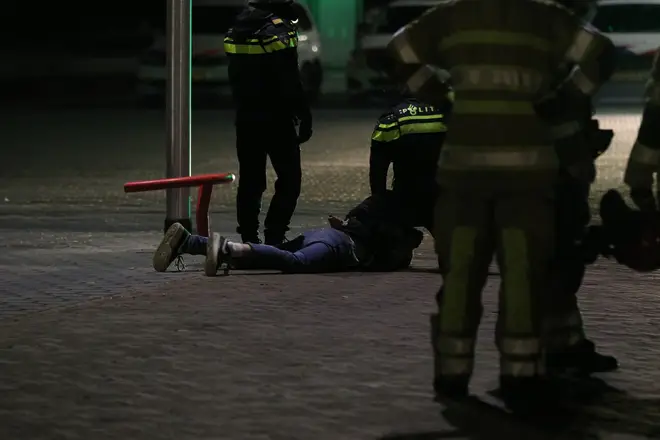
Those outside their homes during this time must carry a government form, with violations resulting in a fine of at least 95 euros.
The Netherlands is not the only country in Europe to implement a curfew, a 12 hour curfew has been in place in France since last Saturday, running from 6pm to 6am.
On Thursday, French Health Minister Olivier Veran said the government were now asking people to use medical grade masks rather than homemade fabric face masks due to concerns about the more contagious strain of Covid first found in the UK.
The French Academy of Doctors has also issued new guidance saying people should "avoid talking or making phone calls" in subways, buses or anywhere in public where social distancing is not possible.